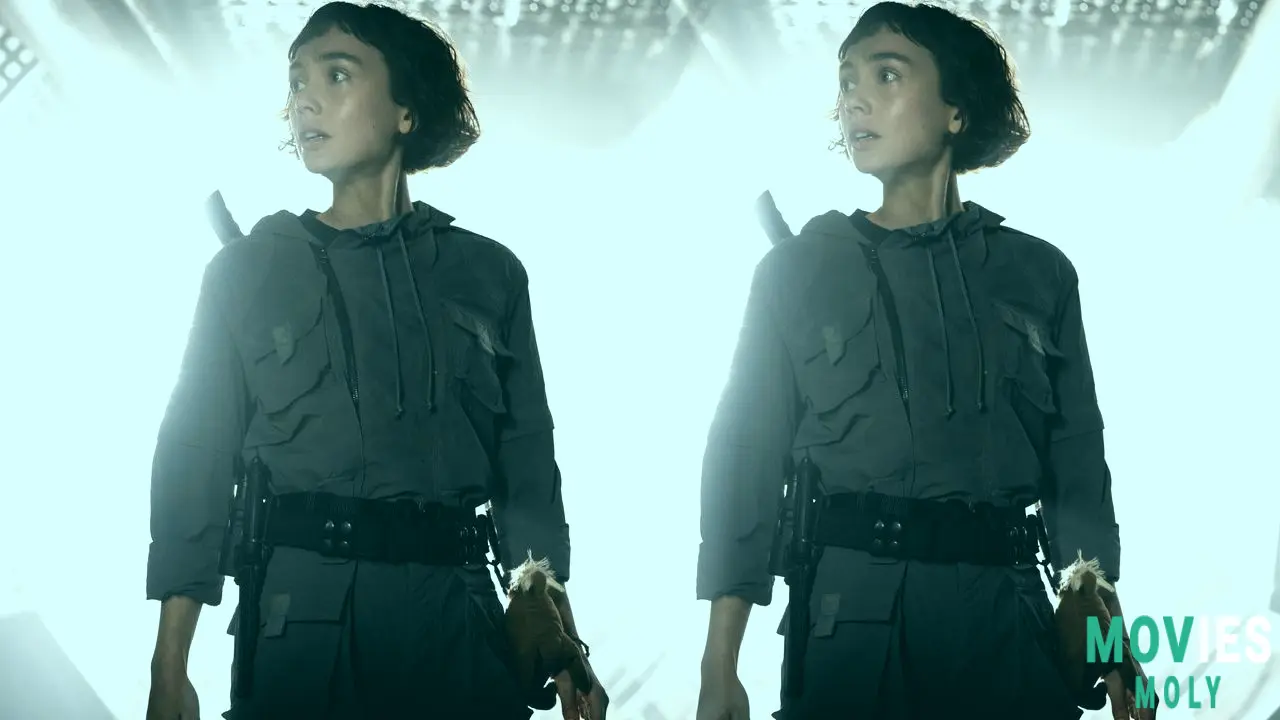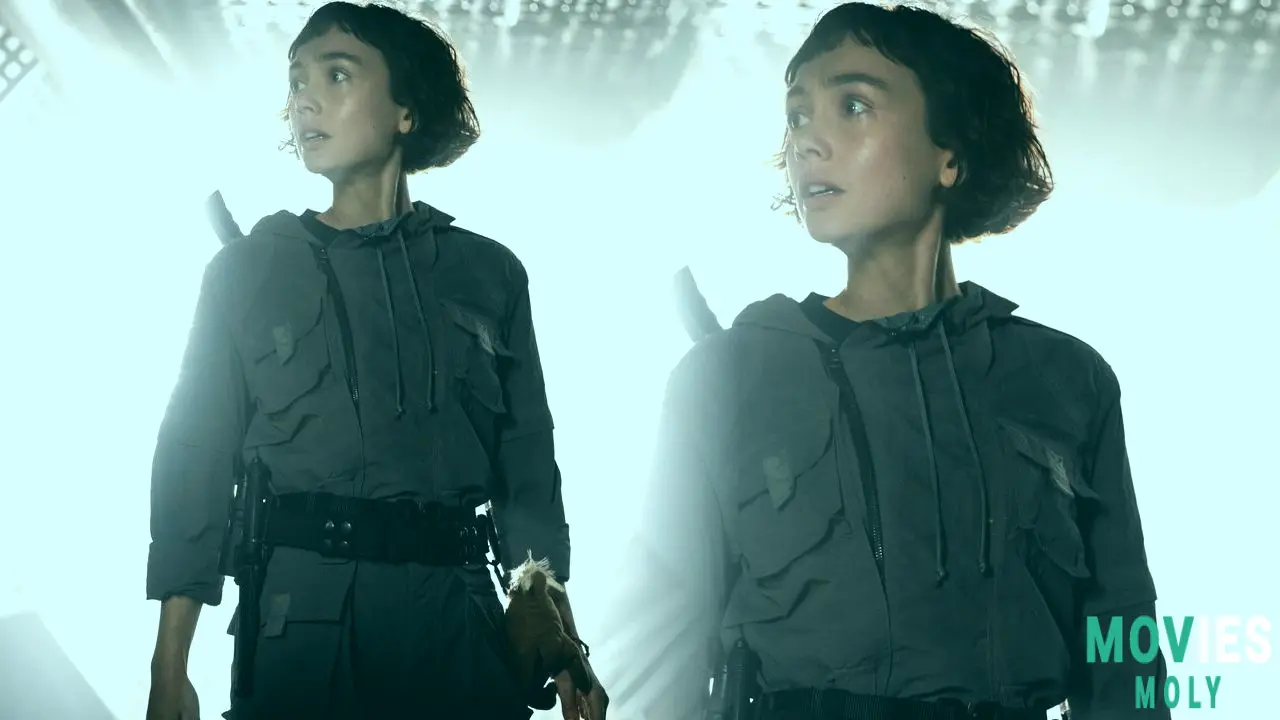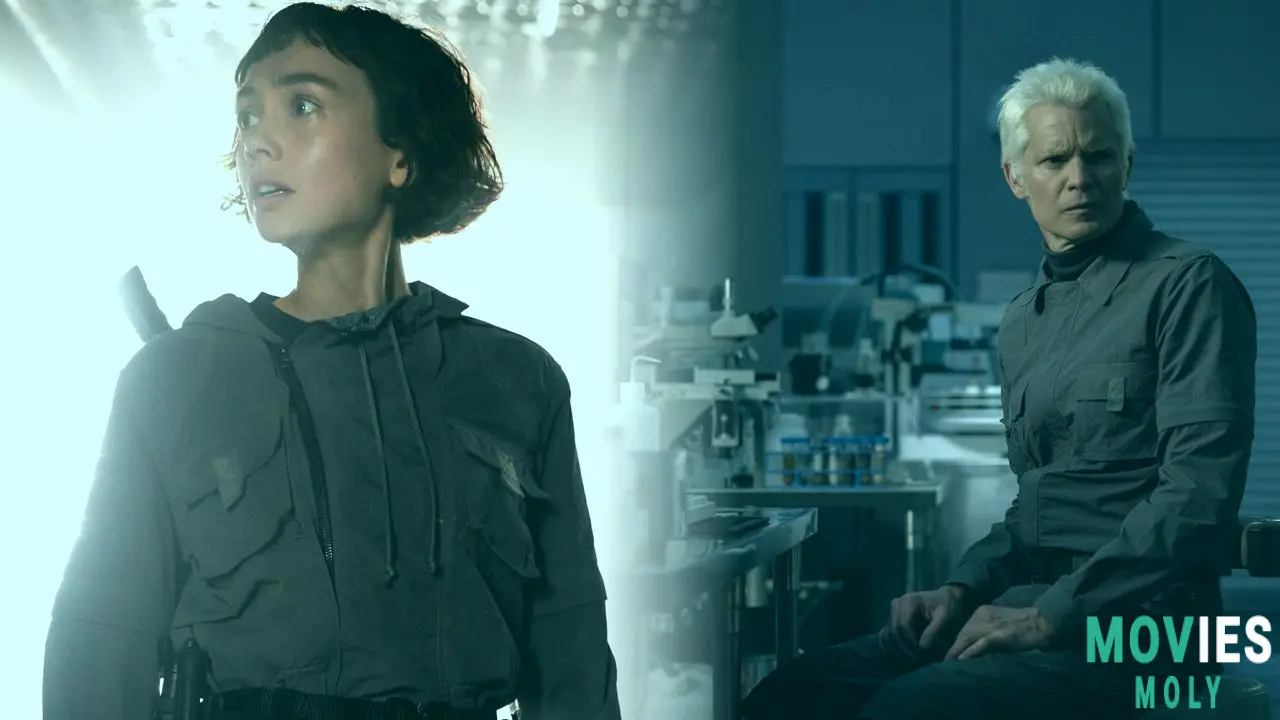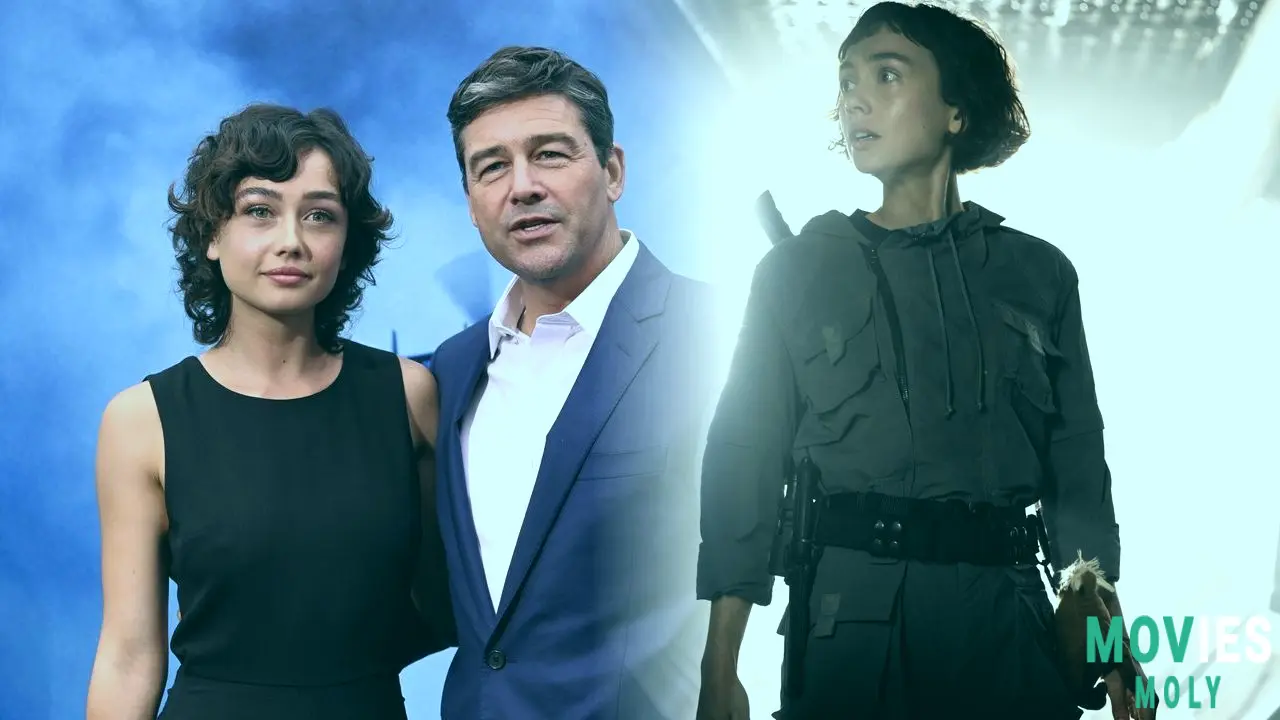Noah Hawley's Alien: Earth is more than just another prequel; it's a daring remake that asks major issues while delivering the Alien franchise's signature terrifying sci-fi horror. This new television series, available on FX and Hulu, enters a universe already populated by iconic animals and scary encounters. However, Hawley breaks new territory, changing the focus from claustrophobic space dread to a more vast, apocalyptic depiction of humanity's home planet.
Set in 2120, two years before the Nostromo's catastrophic expedition, Alien: Earth quickly distinguishes itself. The story begins not with a space crew, but with the devastating accident of the research vessel Maginot on Earth. This incident unleashes a terrifying swarm of extraterrestrial creatures, including a familiar Xenomorph, on a highly inhabited planet. The underlying dread, and the series' gripping core, is found in another development: the production of human-synthetic hybrids by Prodigy Corporation, a powerful rival to the famed Weyland-Yutani.
Unpacking Alien: Earth's Plot, Characters, New Aliens, and Franchise CanonUnexplored Themes and Subtopics
Alien: Earth quickly establishes its dual narrative. The first episode, "Crash Landing," depicts the Maginot's abrupt descent and the instant turmoil that ensues. Security officer Morrow, a cyborg played with remarkable nuance by Babou Ceesay, is stuck in the wreckage and witnesses the unleashed horrors firsthand. Simultaneously, we are introduced to Prodigy Corporation's contentious endeavor of putting the minds of terminally ill children into adult synthetic bodies, providing them theoretical immortality.
This is where the series really takes off, transcending beyond basic creature feature scares. The key characters are the "Lost Boys," called after J.M. Barrie's Peter Pan. The first and most prominent is Wendy, played by Sydney Chandler, a former cancer patient who renames herself after the eldest Darling kid. Her quest of self-discovery, navigating a new body and a world on the verge of collapse, serves as the series' emotional foundation.
The series' first episodes methodically create tension by depicting the corporate competition between Weyland-Yutani, which commissioned the Maginot's perilous cargo, and Prodigy, commanded by the quirky and pompous Boy Kavalier (Samuel Blenkin). Kavalier, a precocious billionaire with a Peter Pan fetish, dispatches Wendy and her fellow hybrids to examine the crash site, setting the stage for a clash between human ambition, artificial life, and alien fear.
Recommended Content Sections to Add Value
Alien: Earth's protagonists are far from one-dimensional, with each struggling to find their place in a world increasingly dominated by corporate power and developing forms of intelligence. Wendy, being the first human-synthetic hybrid, stands apart. Sydney Chandler delivers a compelling blend of infantile wonder and adult ambition to the part. Her mental fight, a young mind in a strange body, distinguishes her as a unique hero in the Alien universe. Her path of self-discovery is the driving force behind this captivating series.
Sydney Chandler impresses as Wendy, #AlienEarth's first human-synthetic hybrid. Her quest of self-discovery is central to this fascinating series. #TVReview
Boy Kavalier, the founder of Prodigy, is a persona meant to provoke. Samuel Blenkin portrays him as an infuriatingly casual computer magnate, barefoot and in pajamas, exemplifying the risks of unrestrained corporate hubris and artificial intelligence. His preoccupation with Peter Pan is more than simply a quirky detail; it represents his ambition to escape mortality and manage his own "Lost Boys."
The hybrids' minder is Timothy Olyphant's Kirsh, an older-model synthetic. His sharp humor and cynical wisdom provide a fascinating contrast to the hybrids' juvenile naiveté. Kirsh's perspective, as a machine with a lengthy past, lends depth to the show's investigation of what it means to be alive. Morrow, played by Babou Ceesay, is the Weyland-Yutani cyborg security officer from the Maginot. He starts out as a brutal company man but acquires surprising depth as the season proceeds, demonstrating the fatal cost of corporate allegiance.
Alex Lawther plays Hermit, Wendy's human brother and a Prodigy-employed physician. His grounded, human perspective provides an important anchor, emphasizing the hybrids' emotional stakes and the striking contrasts between their new existence and the delicate human situation.
New Alien Creatures and Franchise Canon Explained.

Primary and Secondary Keywords Identified
While the Xenomorph remains the franchise's most horrifying icon, Alien: Earth presents a slew of new alien creatures that are equally disturbing. These aren't merely variants on a theme; each has distinct qualities and methods of attack, expanding the universe's bestiary. One particularly notable addition is a parasitic eyeball organism that hijacks the nervous system, resulting in some very terrifying body horror scenes. Its disturbing hallmark move is among the season's most visceral horrors.
The new animals in #AlienEarth are terrifyingly filthy, in the nicest way possible. Prepare for some extremely disturbing body horror! #Xenomorph #ScienceFiction
These new creatures compliment, rather than overpower, the Xenomorph. The series takes care to keep the "perfect organism" unique, typically depicting the new animals in a non-competitive setting. This enables for new sorts of terror, such as situations in which the alien menagerie monitors its human captors, generating an unnerving tension that contrasts with the Xenomorph's unrelenting pursuit.
In terms of Alien franchise canon, Alien: Earth is set in 2120, predating Ridley Scott's original Alien (1979). This prequel status enables Noah Hawley to flesh out the human society that existed before the Nostromo's meeting. The show depicts a future in which traditional governments have disbanded and been replaced by five mega-corporations that function as nation-states, commanding huge territory and armies. Weyland-Yutani is one of these, but Prodigy Corporation's presence adds a new element to the films' corporate dystopia, which has always been present in subtle ways.
The series tackles continuity issues by focusing on novel parts of the universe, such as human-synthetic hybrids. It also delves into the origins of certain alien species in novel ways, while mainly avoiding rehashing the Xenomorph's life cycle, presuming viewer knowledge. This method allows the show to follow its own route while being firmly connected to the established universe. The fact that synthetics are not natural prey for Xenomorphs is an important plot feature, allowing for a longer story than if the main characters were vulnerable humans.
Beyond the Scream: A Deep Dive into Alien: Earth's AI, Corporate Dystopia, and Philosophical Questions.

Long-tail and low-competition keyword opportunities
Alien: Earth is more than just a horror film; it is a thought-provoking examination of contemporary issues. The series delves into subjects such as AI, corporate overreach, and transhumanism with philosophical depth that is uncommon in franchise extensions. The human-synthetic hybrids, with children's minds in adult bodies, require viewers to confront issues of personhood, consciousness, and the ethics of extending life at any cost. This corresponds to contemporary real-world discussions regarding artificial intelligence and the future of human biology.
Beyond the shocks, #AlienEarth masterfully explores topics of corporate overreach and the dangers of artificial intelligence. A genuinely thought-provoking installment in the Alien series. #DystopianFuture
The show's corporate landscape, dominated by companies such as Weyland-Yutani and Prodigy, serves as a stern warning against unchecked corporate dominance. These corporations act with impunity, valuing profit and scientific "progress" before human (or hybrid) life. This gloomy picture is reminiscent of several influential science fiction books that explore similar area. While Blade Runner is an obvious comparison due to its emphasis on synthetics and a bleak East Asian cityscape, Alien: Earth also shares DNA with films such as Gattaca, which explores genetic manipulation and social stratification, and Ex Machina, which examines AI consciousness and manipulation.
Is humankind worth saving? #AlienEarth confronts the big questions, combining traditional #Alien terror with significant philosophical quandaries. Do not miss it! #NoahHawley
Noah Hawley's approach to this television series is similar to his work on Fargo and Legion, in which he took established notions and turned them into something completely his own. Here, he exploits the recognizable dread of the Alien genre as a Trojan horse to advance larger concepts, questioning if mankind is worth rescuing when its institutions are so corrupt and its goal of immortality so reckless.
Behind the Scenes and Speculation for Season 2

Creating Engaging Titles and Meta Descriptions
The development of Alien: Earth demonstrates its ambition. Andy Nicholson, the production designer, creates powerful imagery ranging from the ungainly Maginot squeezed inside a high-end retail complex to the expansive, chilly style of Prodigy's facilities. The new animals are realistically depicted, achieving a mix between actual effects and computer upgrades to attain their terrifying appearance. The attention to detail in world-building, from the costumes to the languid edits and cross dissolves, pays homage to Ridley Scott's original Alien while forging its own unique visual identity.
Another notable feature of Alien: Earth is Jeff Russo's musical score. It combines iconic Jerry Goldsmith sounds from the original film with new leitmotifs to enhance the show's distinct vibe. What actually distinguishes it, however, are the unexpected hard rock needle drops that punctuate each episode's conclusion. These music, which frequently have lyrics that discreetly relate to the episode's themes, make a startling yet effective transition, creating a lasting impression after the credits roll.
Noah Hawley's #AlienEarth is more than just a prequel; it's a disturbing examination of humanity as seen through the lens of technology. A must-see for science-fiction enthusiasts! #FX, #Alien
As the first season ends, many mysteries linger, laying the groundwork for possible Season 2 plots. The fate of the numerous extraterrestrial specimens, the ongoing corporate battle, and the continued progress of human-synthetic hybrids provide fertile ground for future stories. Will Wendy and the other Lost Boys gain actual agency, or will they remain pawns in the hands of businesses like as Prodigy and Weyland-Yutani? How will the presence of Xenomorphs on Earth affect the planet's future, leading directly to the events of the original films? The series offers plenty of clues for an intriguing continuation.
Alien: Earth is a strong and thought-provoking addition to a popular franchise. It honors its traditions while boldly venturing into new ground, providing both visceral terror and serious philosophical issues. Noah Hawley has created a television series that is both a gripping horror story and a timely statement on our own concerns about technology and power. It's a must-see for fans of sci-fi horror.




